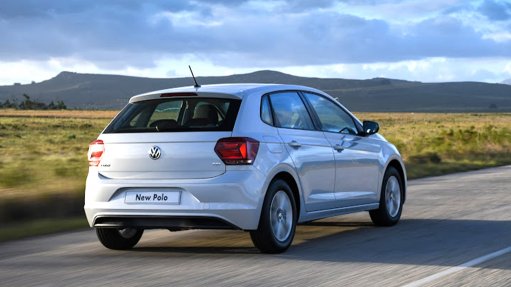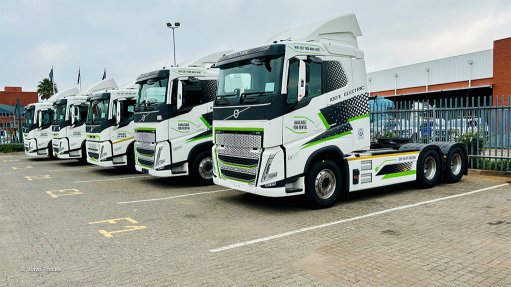New study picks holes in nuclear build logic
The recent climate negotiations in Paris set in place national commitments to reduce emissions. This has prompted some support for nuclear as a climate-friendly alternative for electricity generation, owing to its low operational emissions. There are, however, inherent problems with nuclear plants, and these include high construction costs, radioactive waste, decommissioning requirements, long construction times and disaster management plans.
South Africa’s Integrated Resource Plan (IRP) 2010 suggested that 9.6 GW of nuclear could form part of the national electricity mix by 2030. Six years later, the updated IRP has still not been finalised, and conditions stipulated in the plan are no longer realistic. Despite this, government continues with the recommendations from 2010 as its mandate.
A key issue that lacks clarity is the effect this nuclear investment will have on the price of electricity. The Energy Research Centre (ERC) at the University of Cape Town recently released a study that examined the macroeconomic effects of this commitment to build 9.6 GW of nuclear, compared with a flexible approach that aims to minimise overall costs, while meeting electricity demand. This flexible plan does not preclude nuclear, but only allows it to be introduced if, and when, it is prudent to do so.
The study was divided into two scenarios. The first assumes a realistic ‘best case for nuclear’ – a future with advantageous nuclear parameters, high costs for renewables, no gas or hydro alternatives, and high electricity demand. The second assumes a ‘worst case for nuclear’, where the assumptions are essentially reversed – a future of less favourable nuclear parameters, affordable energy alternatives and lower economic growth.
In each case, the outcome of a forced nuclear build is compared with flexible planning. In the first scenario, there was no significant impact on the economy, comparing the nuclear commitment with a flexible approach.
However, in the second scenario, electricity prices would be 20% higher in 2040, up to 75 000 jobs could be lost and welfare would decrease – all as a result of committing to nuclear rather than flexibility.
No one knows how the future will unfold, but it is possible to predict what is more likely to happen. By modelling 1 000 different scenarios, the researchers who conducted the study concluded that it is less likely that conditions in the future will favour promotion of nuclear power. In fact, by having the 9.6 GW nuclear build, there is a 94% chance that electricity prices will be higher by 2030 than if we were to adopt a flexible approach. The researchers state: “Our results show that there is no economic case to be made for a firm commitment to commissioning a full fleet of 9.6 GW of nuclear power by 2030.”
Overinvestment in nuclear will decrease our ability to invest in small-scale and more cost- effective technologies. It is a classic case of putting all our eggs in one basket – and the ERC’s data suggest that it is the wrong basket.
This is critical information for the South African public. In the debate around nuclear, we now have a rigorous study that examines our exact situation and concludes that it does not make economic sense to forge ahead with the nuclear build at this stage.
Further, the Department of Energy has been pushing for the procurement process to proceed as fast as possible, yet the IRP has not even been finalised. As the ERC study states: “. . . there is no rush in terms of making this decision, and there is no justification for making a commitment of this scale at this time.”
So, why is government pushing so hard for it?
From a climate change mitigation standpoint, the argument for nuclear is weak. There are simply better options. Renewable energy solves the emissions problem without the inherent issues associated with nuclear.
We also have much better solar and wind resources than most countries in Europe, which have already demonstrated their viability. Renewables have been criticised for their intermittency, but energy storage technology continues to improve. Coupled with smart grids, it is certainly possible for renewable energy to provide baseload power. In fact, renewables can do far more: Uruguay now gets 95% of its electricity from renewable resources (and the price of electricity has decreased). In 2015, global investment in this sector was $286-billion, resulting in 134 GW of additional capacity. This was more than all large-scale hydro, coal, gas, and nuclear capacity for 2015 combined.
So, if there are better options from both a climate change and economic point of view, we must again ask why our government is pushing for this nuclear build. Vested interests and out-of-date planning documents are not justification enough.
Comments
Press Office
Announcements
What's On
Subscribe to improve your user experience...
Option 1 (equivalent of R125 a month):
Receive a weekly copy of Creamer Media's Engineering News & Mining Weekly magazine
(print copy for those in South Africa and e-magazine for those outside of South Africa)
Receive daily email newsletters
Access to full search results
Access archive of magazine back copies
Access to Projects in Progress
Access to ONE Research Report of your choice in PDF format
Option 2 (equivalent of R375 a month):
All benefits from Option 1
PLUS
Access to Creamer Media's Research Channel Africa for ALL Research Reports, in PDF format, on various industrial and mining sectors
including Electricity; Water; Energy Transition; Hydrogen; Roads, Rail and Ports; Coal; Gold; Platinum; Battery Metals; etc.
Already a subscriber?
Forgotten your password?
Receive weekly copy of Creamer Media's Engineering News & Mining Weekly magazine (print copy for those in South Africa and e-magazine for those outside of South Africa)
➕
Recieve daily email newsletters
➕
Access to full search results
➕
Access archive of magazine back copies
➕
Access to Projects in Progress
➕
Access to ONE Research Report of your choice in PDF format
RESEARCH CHANNEL AFRICA
R4500 (equivalent of R375 a month)
SUBSCRIBEAll benefits from Option 1
➕
Access to Creamer Media's Research Channel Africa for ALL Research Reports on various industrial and mining sectors, in PDF format, including on:
Electricity
➕
Water
➕
Energy Transition
➕
Hydrogen
➕
Roads, Rail and Ports
➕
Coal
➕
Gold
➕
Platinum
➕
Battery Metals
➕
etc.
Receive all benefits from Option 1 or Option 2 delivered to numerous people at your company
➕
Multiple User names and Passwords for simultaneous log-ins
➕
Intranet integration access to all in your organisation


















